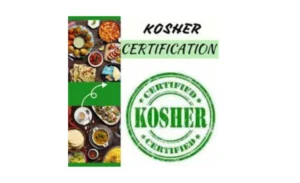Understanding the Kosher Certificate: What It Means and Why It Matters

Kosher Certificate
In today’s global food market, transparency and trust are everything. As consumers grow more conscious of what they eat, many turn to certified products that meet their dietary, ethical, or religious standards. One such important certification is the Kosher Certificate. But what exactly does this certificate mean, and why is it so important in the food industry?
Let’s break it down in simple terms.
What Does “Kosher” Mean?
The word “Kosher” comes from Hebrew, meaning “fit” or “proper.” In the context of food, it refers to items that comply with Jewish dietary laws, also known as Kashrut. These laws come from the Torah, the central text in Judaism, and have been observed for thousands of years.
A Kosher diet isn’t just about what foods are allowed, but also how they are prepared, processed, and even packaged. It covers meat, dairy, grains, fruits, vegetables, and everything in between.
What Is a Kosher Certificate?
A Kosher Certificate is an official document issued by a reliable Kosher certification agency. This document confirms that a food product, ingredient, or establishment follows all the required Jewish dietary laws.
The certification applies to various businesses such as:
-
Food and beverage manufacturers
-
Restaurants
-
Catering services
-
Food processing plants
-
Packaged goods
To earn this certification, the business must undergo regular inspections and audits by trained Kosher inspectors, also known as Mashgiachs. They ensure every step—from sourcing ingredients to production and packaging—meets Kosher requirements.
Why Do Businesses Need Kosher Certification?
You might wonder, “If I’m not Jewish, why would my business need this certificate?” Here’s why:
1. Wider Market Reach
A Kosher Certificate opens the door to millions of consumers worldwide who strictly follow Kosher dietary laws. In countries like the U.S., UK, Canada, and Israel, Kosher products are in high demand.
Surprisingly, many non-Jewish consumers also look for the Kosher label. People with food allergies, vegans, and health-conscious buyers often choose Kosher products for their strict standards and clear labeling.
2. Brand Trust and Credibility
Having a Kosher Certificate adds credibility. It shows your business maintains high levels of cleanliness, transparency, and quality control. This helps build trust among consumers, retailers, and partners.
3. Export Opportunities
If you plan to export food products, many international markets require Kosher certification. It often becomes a mandatory standard for doing business with certain distributors, especially in Jewish communities or countries where Kosher goods are popular.
4. Operational Improvements
The certification process often improves internal systems, from quality assurance to sanitation. This benefits not just Kosher compliance but overall product consistency and safety.
How Does the Certification Process Work?
Getting a Kosher Certificate involves a few clear steps:
-
Application
You start by submitting an application to a Kosher certification agency. You’ll provide details about your products, ingredients, suppliers, and manufacturing process. -
Inspection
A trained Kosher inspector will visit your facility to examine equipment, storage, cleanliness, and ingredient sources. -
Evaluation
The agency reviews whether your process complies with Jewish dietary laws. In some cases, you may need to make changes, such as segregating meat and dairy products or using Kosher-approved ingredients. -
Certification Issued
Once your facility meets all requirements, the agency issues a Kosher Certificate, usually valid for a year. Your products can then carry a Kosher symbol on their packaging. -
Ongoing Compliance
To maintain certification, your business must allow routine inspections and keep up with any regulatory updates.
Popular Kosher Symbols
When you shop, you might see symbols like OU, KOF-K, OK, or Star-K on product labels. These represent the certification agencies. Each one has its own set of standards, but all ensure the product meets Kosher guidelines.
Final Thoughts
The Kosher Certificate is more than a religious label—it’s a mark of trust, quality, and global readiness. Whether you’re a food manufacturer, exporter, or restaurant owner, obtaining Kosher certification can elevate your brand and unlock new markets.
In a world where consumers want to know what’s on their plate, offering Kosher-certified products is a smart move. It reflects your commitment to inclusivity, transparency, and high standards, which can only strengthen your reputation in a competitive food industry.

